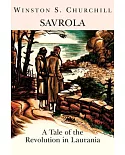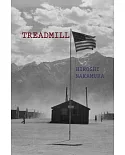Guaranteed to send shock waves through the literary community, Perec's W tells two parallel stories. The first is autobiographical, describing the author's wartime boyhood. The second tale,
denser, more disturbing, more horrifying, is the allegorical story of W, a mythical island off Tierra del Fuego, governed by the thrall of the Olympic "ideal," where losers are tortured and
winners held in temporary idolatry.
As the reader soon discovers, W is a place where "it is more important to be lucky than to be deserving," and "you have to fight to live ... ��with�穡 no recourse, no mercy, no salvation, not
even any hope that time will sort things out." Here, sport is glorified and victors honored, but athletes are vilified, losers executed, stealing encouraged, rape common, and violence a fact of
life.
Perec's interpretive vision of the Holocaust forces us to ask the question central to our time: How did this happen before our eyes? How did we look at those "shells of skin and bone, ashen
faced, with their backs permanently bent, their eyes full of panic and their suppurating sores?" How did all of this happen, not on W, but before millions of spectators, some horrified, some
cheering, some in-different, but all present at the games watching the events of that grisly arena?





















